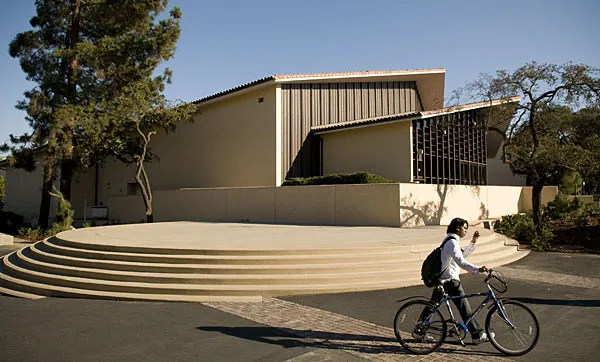Table of Contents
Students running for public office, for example, are not allowed to use campus resources for their campaign efforts. As a result, Stanford forbids students from using Zimbra email accounts to send campaign related messages.
University regulations make it that much more challenging for student politicians to succeed.It is hard enough as it is, for students such as Roman Larson, who ran for his district’s school board in Wisconsin, or Michael Tubbs, who is running for city council in Stockton, to get elected so young.
These policies are complicated because they do regulate students’ speech—a sensitive consideration in a Liberal Arts institution devoted to the free exchange of ideas.
Indeed, Stanford has a somewhat thorny record on the use of free speech by students. FIRE, the Foundation for Individual Rights in Education, currently rates Stanford with a speech code rating of “yellow light.”
“Yellow light colleges and universities are those institutions with at least one ambiguous policy that too easily encourages administrative abuse and arbitrary application,” explains the foundation’s website.
FIRE cites four policies that are ambiguous in this respect, including Stanford’s Fundamental Standard, which posits that breaches of “order, morality, and personal honor,” are grounds for “removal from the University.”
In the past, FIRE has granted Stanford a speech code rating of “red light,” a story that the Review covered in 2009. Interestingly, Stanford’s current policies regarding political activism have not fallen under the purview of FIRE.
Stanford’s regulations of political activities originate in the University’s tax-exempt status.
“Because of the University’s tax-exempt status, the University is legally prohibited from endorsing candidates for political office,” states the Administrative Guide Memo 1.5 on “Political Activities.”
Thus, the report asserts, “ it is very important that [members of the University community engage in political activities] in their individual capacities and avoid even the appearance that they are speaking or acting for the University in political matters.”
According to these provisions, political expression through Stanford resources constitutes a political endorsement, which the University is legally prohibited from doing. Moreover, even the appearance of the endorsement is problematic, which sets a high bar for students, and an indefinite one at that.
“People have freedom of speech, no one is suppressing speech in any way…it’s just whether you can use—for example—your Stanford email account” argued, Jeff Wachtel, Senior Assistant to President Hennessey.
“It’s not a Stanford rule, it’s the tax law,” he continued.
Wachtel grounded, then, what may be considered an illiberal policy, in Stanford’s legal obligations as a tax-exempt institution. The onus is on the law not on Stanford.
While a strictly libertarian outlook may object to such a concession, there is a substantive trade-off involved in tax exemption status and its attendant commitments,
“Teaching, research and public service have been recognized in federal law as critical to the well being of our democratic society,” states a report by American Association of Universities (AAU) on the Internal Revenue Service Code section 501(c) 3 and Section 115.
“[The] tax exemption enables [educational] institutions to maximize the benefits they provide society, including: an educated citizenry which is essential to our democracy; a highly educated, skilled, and productive workforce which is critical to our nations competiveness.”
Thus, tax exemption has broad socially beneficial effects, despite restrictions borne by individuals.
Stanford, then, an affiliate the AAU, can be said to have a prima facie credible justification for regulating political expression as such. This justification, however, does not account for some of the thornier details of the regulatory policy.
First, there is the question of White Plaza. White Plaza is designated as a “free speech zone.” If free expression is casually permitted in White Plaza, why is it troublesome in other venues?
Second, the definition of political activism seems overly fuzzy. Stanford can prohibit students from sending out emails if they are running for office, but not if they are organizing a meeting with expressly political purposes. For example, groups such as Stanford Dems, SPER (Students for Palestinian Equal Rights), and SIA(Stanford Israel Alliance) routinely use Zimbra to coordinate events and express political convictions.
Perplexingly, the manifest political activism in these cases does not constitute an official University endorsement (nor the more troublesome clause, appearance of endorsement).
A final problem involves the structural subjectivity of policy. The last clause of Administrative Guide Memo 15.1 provides that, “the Vice President for Public Affairs, in consultation with the General Counsel, is the administrative office responsible for interpretation and application of the above guidelines.”
The discretion accorded to the administration represents potential abuse of freedom of expression. What protects students who express critical and inexpedient views from being considered politically active or violators of order, and thus subject to regulation or even punishment?





